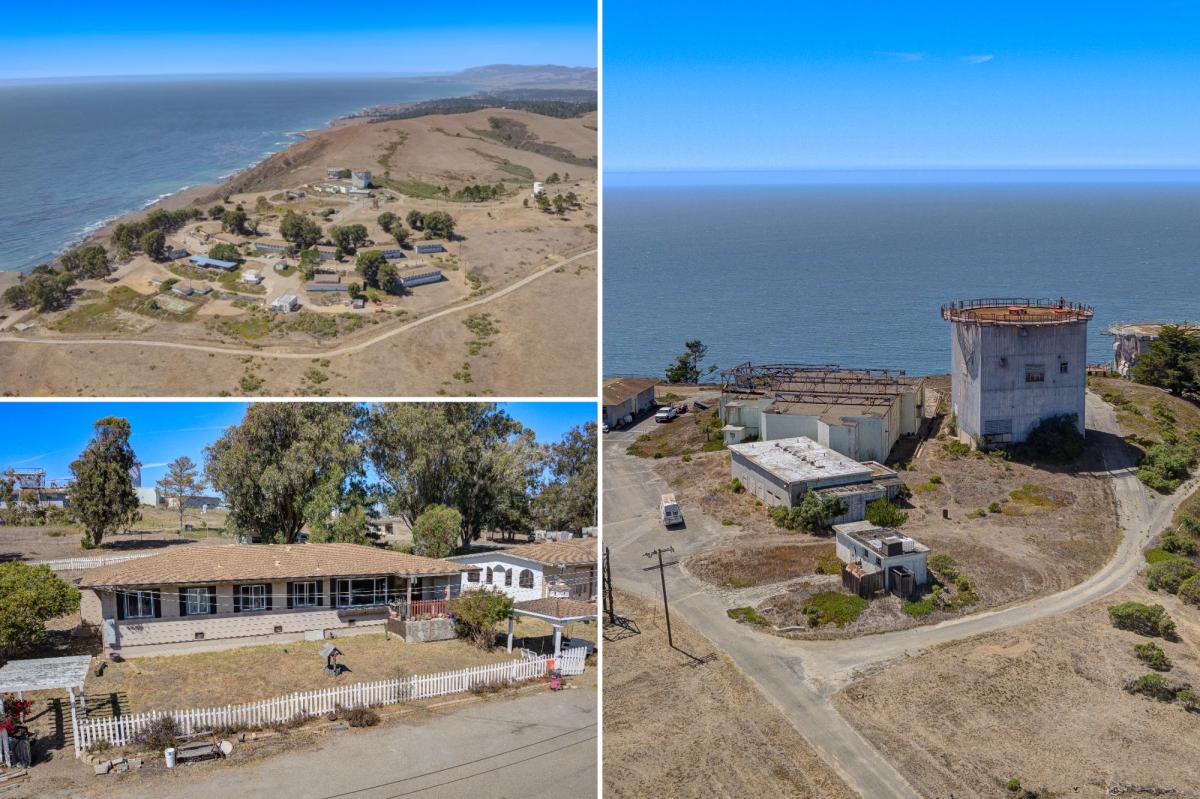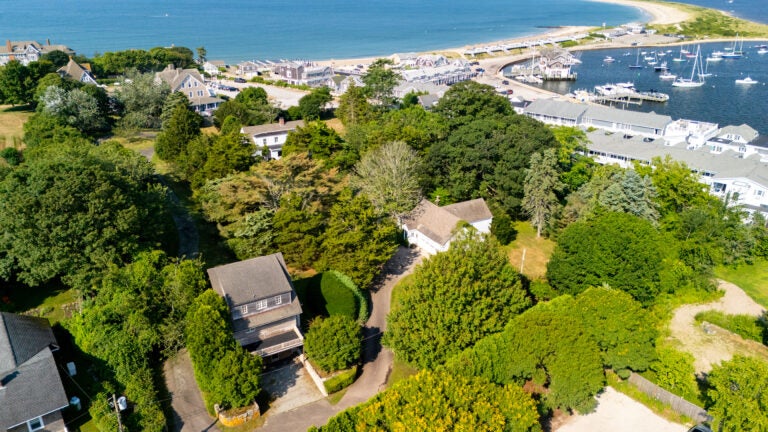P
erched on a rocky hill about ten miles north of Cambria, California, the former Cambria Air Force Base—once a covert Cold‑War radar station—has been on the market for $3.2 million. The 34‑acre site, largely vacant, contains 32 abandoned structures: barracks, a radar tower, operations buildings, and a derelict basketball court. An observation deck offers sweeping views of the Pacific, while a single residential building on the property contains five bedrooms and roughly 2,100 sq ft of living space, though interior photos are missing.
The base was built in the 1950s for secret surveillance missions and decommissioned in the 1980s. Its last private owner was Hollywood producer Bernd Shaefers, who bought it in 2005 for $2 million and reportedly lived there from 2014. Shaefers attempted to repurpose the compound as a community center and later as a 25‑tent glamping site with a helipad, but county planners rejected the idea in 2018 over fire‑safety concerns. In 2019 he filed for bankruptcy and tried to keep the property, but the sale went through in 2020 at $4.4 million, with no buyers. The 2020 listing highlighted a bowling alley, underground bunker, mess hall, greenhouse, and a “lucrative cell tower,” but also noted that some buildings still contained asbestos.
The site has a troubled legal history. In the early 2000s, a multimillion‑dollar asbestos problem prompted a federal raid. In 2011 a caretaker was prosecuted for illegally dumping the material, and Shaefers faced misdemeanor charges. Another mysterious raid in 2006 involved federal and local officers storming the base in the morning; reports suggested they were targeting a weekly church meeting held on the property, which the congregation denied was a cult.
A former owner, Richard Figueroa, partnered with special‑effects producer George Vaile to connect the base to China via fiber‑optic cables, but the venture collapsed amid a legal dispute described by a lawyer as “a bad Shakespeare play with too many King Richards.”
The current listing, part of a bankruptcy sale, offers several potential uses: a private compound, a hospitality retreat, or a research campus. Water shortages in nearby Cambria have persisted for decades, adding another layer of complexity to any future development. Despite its storied past and legal baggage, the property’s panoramic coastal views and expansive acreage remain its most compelling features.














